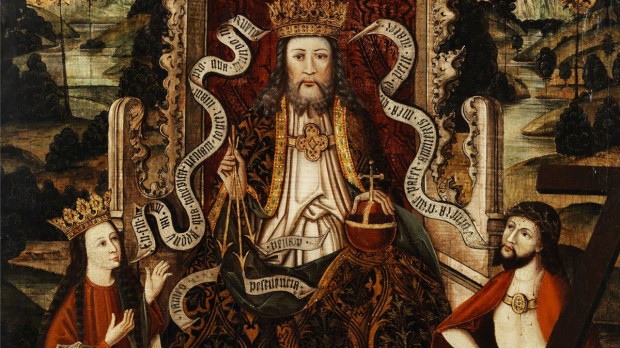Jesus is King, but for us to belong to his kingdom, we must first let him into our hearts. This is not easy, as we often deny him entrance to our hearts, letting the kingdom of the world reign there instead.
When visiting New Zealand in 1986, St. John Paul II gave a homily on the solemnity of Christ the King in which he detailed the ways we can let the Kingdom of God take root in our hearts.
And if we do desire to belong to the Kingdom of God, what are the ways in which this Kingdom of God begins to take root in the human heart? How do reconciliation and peace come about in our innermost self?
1Prayer
The first way, of course, is prayer. This means liturgical prayer in which we join ourselves with Christ the High Priest in the official worship of the Church, and individual prayer, when we meet the Lord alone in our soul. Prayer opens the mind and heart to God. It deepens our longing for his Kingdom. Prayer consciously links us to the Communion of the Saints who support us by their continual intercession.
2Accepting the Gospel Message
A second way of gaining peace of heart is by accepting the Gospel message. Jesus began his public preaching with a call to conversion: “Repent, and believe in the Good News.” The Church continues Christ’s mission by condemning sin, calling people to conversion, and inviting them to be reconciled to God. And in every age, the Church proclaims the goodness and mercy of the Lord. She invites us all to “lay aside every weight, and sin which clings so closely” and to “run with perseverance the race that is set before us, looking to Jesus the pioneer and perfecter of our faith.”
3Dialogue & Recognition of the Source of Truth
Dialogue is yet another way towards reconciliation and peace, that dialogue of faith which proceeds from a deep respect for others and a confidence in the ultimate victory of truth. In order that genuine dialogue may take place, “we must all apply to ourselves the word of God; we must relinquish our own subjective views and seek the truth where it is to be found, namely in the divine word itself and in the authentic interpretation of that word provided by the Magisterium of the Church.”
4Sacraments of the Church
The ways of conversion include penitential practices, almsgiving, fasting and whatever truly helps us pass from sin to spiritual freedom, from selfishness to justice and love, from hatred to a desire for peace. Through all the Sacraments of the Church, Christ himself establishes Gods Kingdom in our hearts. In the Eucharist we receive the Lamb of God who takes away the sins of the world and grants us peace. In the Sacrament of Penance, the Lord reconciles us to himself and sends us forth to be servants of reconciliation in the world. Each of the Sacraments, in its own way, joins us with our Risen Saviour and renews in us the gifts of the Holy Spirit.



